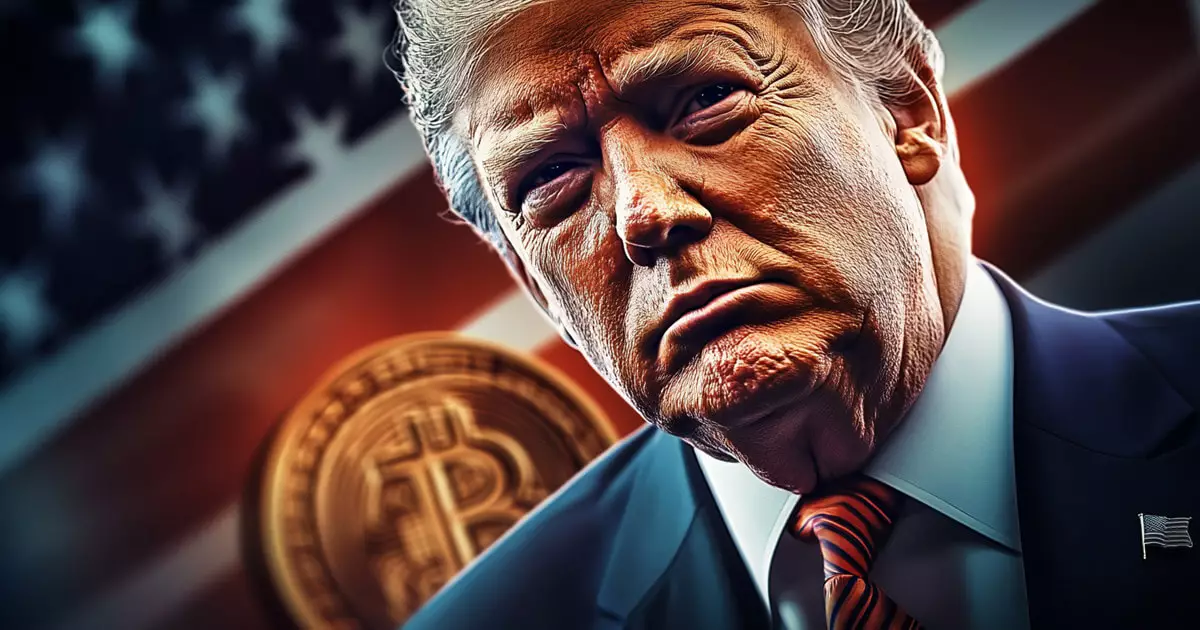The economic world is often a precarious balancing act, and when one major player like the United States veers toward unregulated territories, the repercussions could be overwhelmingly vast. Francois Villeroy de Galhau, the governor of Banque de France, recently articulated a vibrant critique of President Donald Trump’s enthusiastic support for cryptocurrencies. His warnings resonate far beyond Europe; they hold significant implications for global economic stability. By endorsing cryptocurrencies and non-bank finance, Trump is unwittingly laying the groundwork for potential financial catastrophes that may echo the past crises that began in the U.S.
A Recipe for Disaster
Central to Villeroy de Galhau’s argument is the historical perspective on financial crises, wherein three out of five significant financial debacles have stemmed from U.S. soil. The Great Depression, the 1973 OPEC Oil Crisis, and the Great Recession are stark reminders of how American economic policy can have cascading effects worldwide. Each incident was less about isolated failures and more about the chain reactions triggered by misguided financial policies. Villeroy de Galhau warns that today’s crypto-crazed environment could be nurturing similar conditions ripe for upheaval.
The Dangers of Negligence
Villeroy de Galhau cited that “The United States risks sinning through negligence,” a phrase that carries weight in light of the current administration’s laissez-faire approach to cryptocurrency regulation. By lacking stringent frameworks around digital currencies, Trump’s administration isn’t simply taking a bold risk; it’s whitewashing the chaos that could ensue. Without regulatory oversight, the collapse of crypto-assets could spiral out of control. Even worse, it could provoke a loss of faith in financial systems globally. The implications of such a downturn could be catastrophic.
Trump’s Economic Policy: A Grim Narrative
In a broader critique of Trump’s tenure, Villeroy de Galhau describes the administration’s economic policies as akin to a “tragedy for the American economy.” The chaotic trade wars and the unabashed promotion of risky digital assets don’t just endanger American financial health—they send waves of uncertainty across global markets. This volatile climate could deter foreign investment and destabilize alliances, casting a long shadow over international cooperation and economic collaboration.
Critical Voices Amplified
Villeroy de Galhau is not standing alone in this condemnation. His concerns have been echoed by other prominent financial leaders, such as German central bank chief Joachim Nagel, who has likened current economic policies to a “horror show.” This chorus of critical voices suggests that the apprehension regarding Trump’s financial strategies is not merely an isolated viewpoint but a growing concern within the international economic community. When the criticism comes from such eminent sources, it’s indicative of a wider consensus on the risks involved.
A Shift that Raises Pertinent Questions
Since Trump’s ascent to power, the regulatory landscape has shifted dramatically, with major cases against crypto exchanges being dropped and an alarming creation of a crypto strategic reserve. This pivot raises critical questions about the motives behind such actions. Are they genuine attempts to innovate and adapt to new financial realities, or do they reflect a dangerous gamble with national—and global—financial wellbeing? Embracing cryptocurrency, especially under the cloak of market liberalism, requires a tempered approach, not reckless abandon.
The U.S. could be teetering on the brink of sowing chaos with its current trajectory in the crypto space, and that recklessness merits earnest scrutiny and action from both domestic policymakers and the international community. The stakes couldn’t be higher, and the risks, if left unchecked, may illuminate the dark chapters of history yet again.

